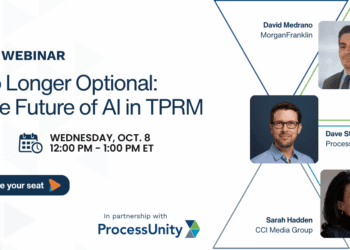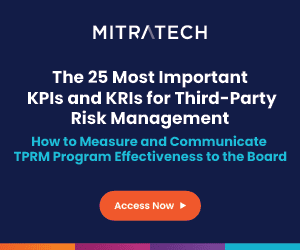According to recent media reports, Bio-Rad Laboratories, a California-based life sciences company, has agreed to pay a total of $55 million to resolve DOJ and SEC investigations into allegations that it violated the FCPA by falsifying its books and records, failing to implement adequate internal controls and making improper payments to government officials in Russia, Vietnam and Thailand. In this post, we will analyze Bio-Rad’s third-party interactions in Russia that led to the violations, as well as the relevant Russian laws regulating third-party interactions in the Russian pharmaceutical market.
Third Parties
As demonstrated in a majority of the cases involving FCPA violations, it all comes down to third-party interactions in the Bio-Rad case as well. The settlement documents state that Bio-Rad’s French subsidiary, Bio-Rad SNC, paid its Russian agents 15 to 30 percent commissions in exchange for various services in connection with government sales and disregarded the probability that these agents used at least a portion of the sales commission payments to bribe Russian health care officials with the aim of winning public tenders. Moreover, Bio-Rad conducted no due diligence on the agents.
The company’s Russian partners were to provide various services, including “acquiring new business, creating and disseminating promotional materials to prospective customers, distributing and installing products and related equipment and training customers.” Significantly, the agents did not perform the services and Bio-Rad approved the commissions despite knowledge that the agents did not perform the services.
According to the SEC, the only purpose to retain the Russian third-party agents was to influence the Ministry of Healthcare in assisting the company to win bids for government contracts, as the agents had neither the capacity nor employees to perform the services for which Bio-Rad had retained them. Additionally, the agents posed a number of red flags, which arguably should have been identified in advance. For example, they used offshore bank accounts in Lithuania and Latvia, as well as fictitious addresses, and were registered in the United Kingdom, Belize and Panama. Furthermore, they all were affiliated with the same individual.
The DOJ decided not to charge Bio-Rad and enter into a non-prosecution agreement instead, due to the company’s self-disclosure of the misconduct and cooperation with the department. The company made its U.S. and foreign employees available for interviews, produced tens of thousands of documents and summarized the findings of its internal investigations, in addition to other remedial actions. Under the non-prosecution agreement, Bio-Rad will have to report to the DOJ regarding its compliance program for two years.
Similarly, Eli Lilly’s Russian subsidiary had used similar agreements “to pay millions of dollars to third parties chosen by government customers or distributors, despite knowing little or nothing about the third parties beyond their offshore address and bank account information.” As in Bio-Rad’s case, the “offshore entities rarely provided any services and in some instances were used to funnel money” to Russian health care officials in order to obtain business. Eli Lilly settled the FCPA related charges in December 2012.
Red Flags
The settlement documents list several red flags that were ignored by Bio-Rad’s managers, such as the lack of resources by the agents to perform the contracted-for services, excessive commissions, offshore bank accounts, the secrecy surrounding the agents, payment of the commissions in installments to bypass an approval tier by Bio-Rad’s corporate controller, occasional pre-payment of the commissions, unnecessary contracted-for services and improperly generated invoices.
All of the factors listed above represent classic red flags faced by companies doing business in high-risk countries and are outlined in the FCPA Guide issued by the DOJ and SEC in November 2012. The government will consider risk-based due diligence with third parties when assessing a company’s compliance program although companies should verify the qualifications of the third parties they are retaining and vet them for a possible affiliation with government officials. Companies may also document the work performed by the third parties and ensure that the compensation is commensurate with the actual services involved in the contract.
Another important factor to consider regarding third-party payments for a pharmaceutical company doing business in Russia in particular is the distinction between the Russian anti-corruption laws and the FCPA/UK Bribery Act with regard to payments made to third parties at the request of a government official. The Russian laws may not always treat such payments as bribery, so long as the government official or their family members do not materially benefit from the payments. For example, a request to make a donation to a charitable or other non-commercial entity may not run afoul of the Russian anti-corruption laws. Consequently, companies should scrutinize such payment requests closely, especially in connection with charitable donations.
Third Party Challenges in Russia
In conclusion, third-party interactions are a well-known risk in Russia. The Russian Federal Law “On the Fundamental Principles of Public Healthcare,” adopted in 2012, has (to an extent) posed additional challenges for pharmaceutical companies in their dealings with third parties. The law obliges each region in Russia to define its own list of vital and essential drugs (also known as the EDL list), which is the basis for the new government reimbursement plans, thereby decentralizing the health care industry by devolving decision-making responsibilities to local authorities.
From now on, pharmaceutical companies will have to address each region separately in their efforts to include products on the EDL lists, taking into account local challenges. There are over 80 separate regions in Russia and navigating all of the local bureaucracies is a significant task. As a result, companies may feel compelled to rely on third-party agents and distribution partners rather than assigning tasks to their own staff. In light of the recent enforcement actions, companies should consider using their resources to screen and monitor third-party relationships, especially taking into account factors such as provincial and republic-level elections, local business and political/bureaucratic developments in the regions and any scandals relating to local governments in the various provinces and autonomous regions.










